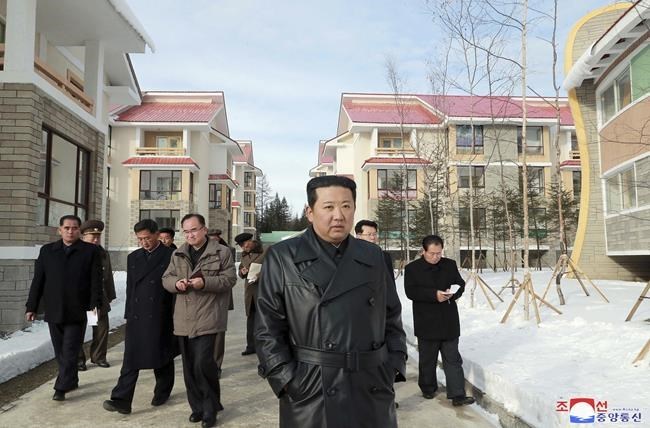OTTAWA — North Koreans who have escaped from Kim Jong Un’s regime say public executions for offences, including watching South Korean videos, are still taking place, some in front of crowds of spectators forced to watch.
A report by a human-rights monitoring group based in South Korea cites over 400 testimonies of executions, including during Kim's decade in power. In the last 10 years executions have mainly been by firing squad, in locations including airfields and river banks, the report says.
The peer-reviewed report by the Transitional Justice Working Group — co-founded by Canadian human-rights researcher Scott Stevens — included interviews with people who have escaped from North Korea, as well as evidence from satellites.
The report, entitled "Mapping Killings under Kim Jong Un: North Korea’s Response to International Pressure," says some prisoners in North Korea have been physically abused or tortured before being shot, and their corpses publicly mutilated, including one with a flame thrower in front of his family.
The report suggests that fewer executions are being held in public view, possibly because of sensitivity to international censure. It also refers to numerous personal pardons by Kim at trial, which the report says were designed "to propagandize" the supreme leader's benevolence.
Executions, which typically involved three shooters firing nine bullets into a victim's body, included people accused of drug-related crimes, watching or distributing South Korean videos, prostitution, human trafficking, murder or attempted murder, and "obscene acts."
The mapping project has spoken to hundreds of North Koreans who have escaped the authoritarian regime. It includes 27 testimonies of state-sanctioned killing sites, of which 23 were public executions, since Kim came to power in December 2011.
A number of interviewees stated that secret killings continue to take place in North Korea. Public executions were most commonly described in places such as open spaces and fields, airfields, river banks and hills.
The report concluded that, in response to international criticism, North Korea has "clamped down on potential information leakages by selecting execution sites that are easier to control" and is executing more people behind closed doors.
A number of testimonies from Hyesan, near the Chinese border, described students being mobilized to attend public trials, with teachers taking attendance to ensure a 100 per cent participation rate. One testimony described workers being forced to attend public trials with another saying that two to three schools took turns attending at a time.
In many cases, executions immediately follow a trial in North Korea, Stevens said.
The report, which includes input from a Canadian academic, took six years to produce and is the latest in a series of research projects mapping human-rights abuses in the authoritarian regime, including killing sites, public executions and mass graves.
"It is becoming increasingly difficult to get recent testimony from North Korea, most recently because of the complete closure of the border between North Korea and China, which is a main point of escape, due to COVID," said Stevens, who is based in Seoul.
The report’s lead author, Ahyeong Park, said the findings suggest that the Kim regime is responding to increased international scrutiny.
"This does not mean the human-rights situation in North Korea is improving. State-led killings continue to take place in ways that may not be as visible to the public as they did in the past."
The Seoul-based organization said it now plans to focus its attention on "secret" executions taking place indoors which cannot be viewed by satellite.
Sean Chung, executive director of HanVoice, a Toronto-based human-rights organization, said "the report's findings demonstrate the need for renewed international action to improve North Korea's human rights record."
This report by The Canadian Press was first published Dec. 15, 2021.
Marie Woolf, The Canadian Press



